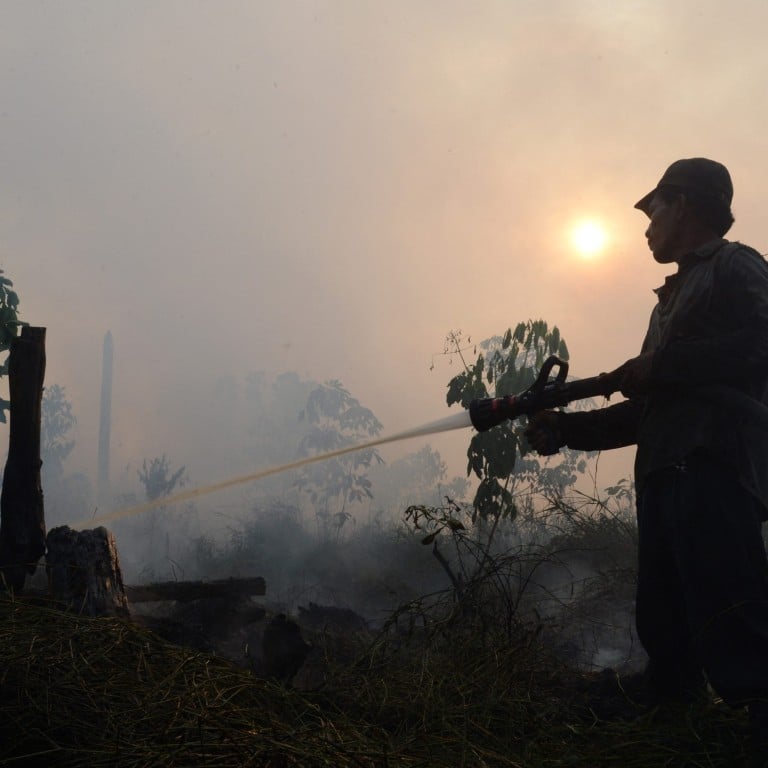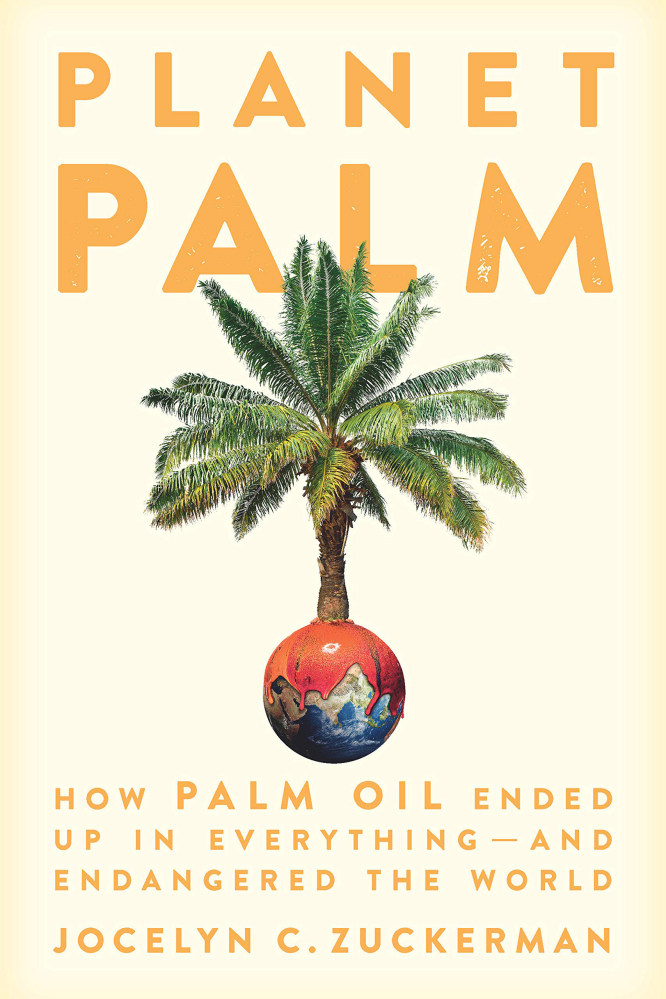
Review | Palm oil, poster child for globalisation’s wrongs, and its part in forest destruction, modern slavery and the obesity epidemic
- How can cultivating a seemingly benign commodity, present in half the food Americans eat, be responsible for so many ills, Jocelyn Zuckerman asks in Planet Palm
- She traces its roots in ruthless colonialism and growth at the hands of rapacious multinationals, and asks if Covid-19 has awoken us to its pernicious effects
Planet Palm by Jocelyn C. Zuckerman, pub. The New Press
The first time my mind turned to the problem of palm oil was during the summer of 2015, when international headlines described a greasy, black cloud improbably covering much of Southeast Asia. Billowing, acrid smoke from Indonesian wildfires cloaked the region, choking cities and people from Sumatra to Singapore, up the Malaysian peninsula as far north as southern Thailand.
The infernos swallowed more than 2.6 million hectares of jungle and other land – an area more than 20 times the area of Hong Kong – obliterating habitat for orangutans and other endangered wildlife and spewing tonnes of greenhouse gases into the sky. An arid El Niño fed and fanned the flames, but the disaster’s origin had none of the same natural innocence: most of the fires, it turns out, were lit by oil palm farmers turning wilderness into palm groves.
The story of how a commodity as seemingly benign as vegetable oil could cause such a world-altering conflagration – and several other evils besides – is at the heart of Planet Palm: How Palm Oil Ended Up in Everything – And Endangered the World, by award-winning American food journalist Jocelyn Zuckerman. The book, a product of years of research and incorporating material from some of the author’s earlier reporting, offers a mostly clear-eyed view of a food-industry darling gone wrong.

On a planet still reeling from the malignant worldwide reach of Covid-19, the book’s critical look at some of the worst shortcomings of globalisation is sure to find a sympathetic audience.
Palm oil, explains the author, is now one of the globe’s most common foodstuffs, present in about half of all products in American grocery stores and accounting for a third of total vegetable-oil consumption around the world. Its production has more than doubled in just the past 15 years, and oil palm plantations – mostly carved from wildlife-rich forests in Indonesia and Malaysia – now cover an area larger than Cambodia. Altogether, people now plough through 72 million tonnes of the stuff each year – about 9kg of palm oil per human – supporting a US$65 billion-a-year industry.
As Zuckerman describes it, palm oil is big business, and seems to have traded its ruthless colonial past for a rapacious multinational present. The author travels, both literally and figuratively, to the industry’s origin in the Niger Delta where, at the beginning of the previous century, British soap maker William Lever exploited West African tribesmen and their native oil palm tree to build Unilever, one of the world’s leading producers of food and consumer goods.
She recounts how the growing popularity of palm oil in everything from margarine to soap to biofuel inspired Indonesia and Malaysia to cultivate the African tree as a key pillar to their economies.
Zuckerman’s main interests, however, are the terrible costs of that success. She documents these in successive chapters. While the bloodstained imperial past of palm oil is no surprise (given the industry’s West African origins), her descriptions of present-day labour abuse, union-busting violence and even slavery are staggering. She describes the health crises – obesity, diabetes and heart disease – now sweeping India and other developing nations that increasingly use palm oil to make deep-fried snacks and processed food.

She visits Sumatra, where the cancer-like spread of palm plantations is destroying some of the planet’s richest biodiversity hotspots. The burning of forests to make way for palm groves incinerates layers of carbon-storing peat along the way. The 2015 fires alone are thought to have added, in two months, the greenhouse-gas equivalent of all of Canada’s emissions for a year.
Meanwhile, as a few food companies, grocery chains and civil society groups grow wise to the problem, the palm oil business has circled its wagons and launched vigorous counter-attacks. A 2019 World Health Organisation report compared these tactics to those used by the dark forces of tobacco and alcohol businesses.
As a portrait of the industry, Palm Planet reads like the unveiling of Dorian Gray’s picture; the ugly image gets uglier. Zuckerman, however, remains hopeful. She describes the positive results of pressure by groups such as the Rainforest Action Network on the industry. She is optimistic that the tragedy of Covid-19, in particular, has turned scrutiny on the links between forest loss and the resulting human-wildlife contact responsible for animal diseases jumping to people.
“The pandemic reminds us with each slowly passing month,” she writes, “just how colossally we’ve screwed up our relationship with the natural world.”
Zuckerman’s book is a timely call to heed that reminder and to finally set right screw-ups such as the palm oil industry.

